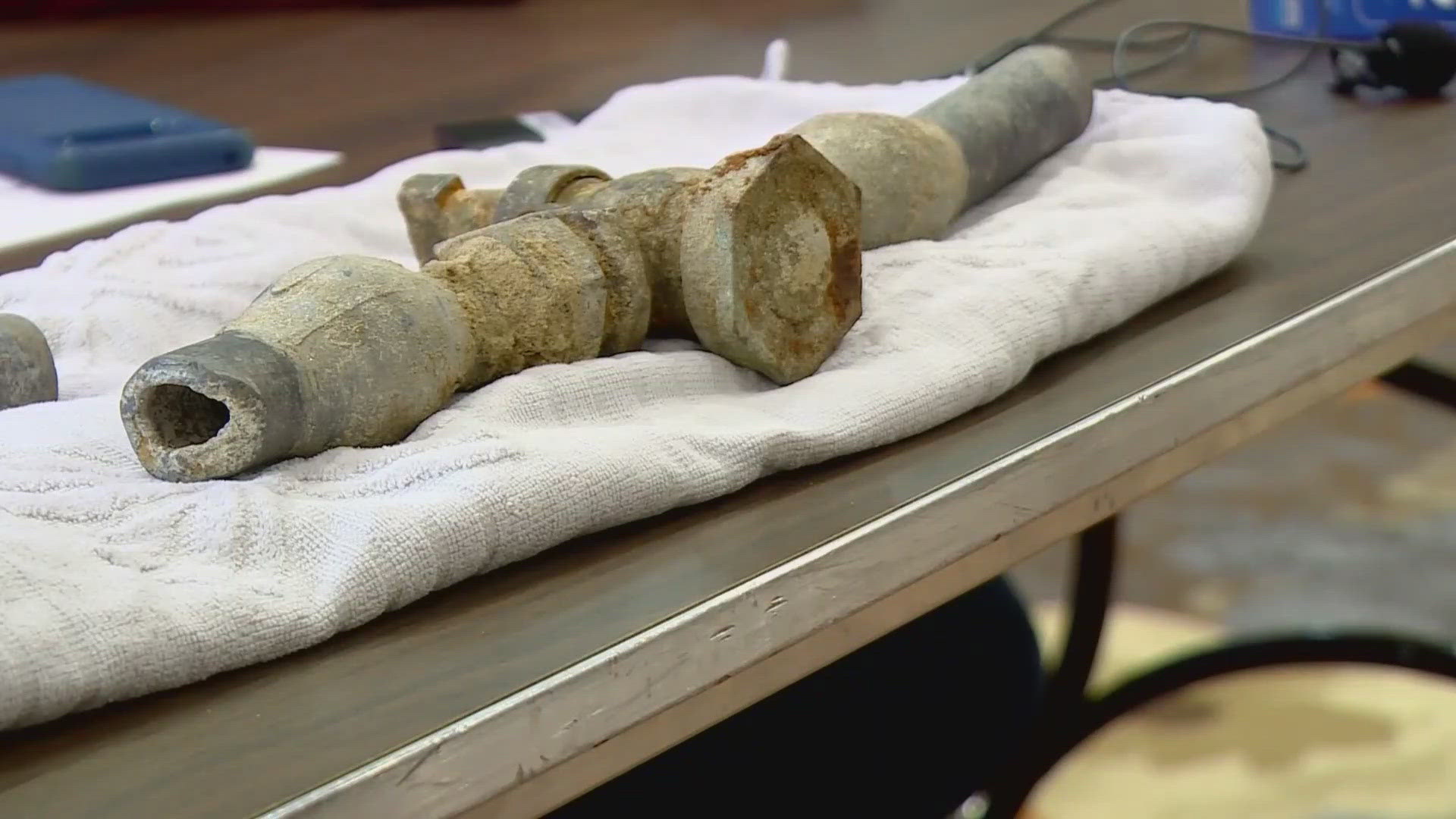HOUSTON — The City of Houston is set to notify nearly 430,000 customers that their water service lines are made of unknown material as part of an effort to identify lead pipes and replace them.
Earlier this month, the Biden administration announced a new rule from the Environmental Protection Agency requiring lead pipes in the U.S. be identified and replaced within 10 years to ensure clean drinking water.
"We have an obligation to make things right," President Joe Biden said at an event in Milwaukee last week announcing the new rule.
Groups that have followed the issue closely said the issue is widespread in the Lone Star State.
"The EPA estimates that there are about 647,000 lead service lines still in operation in Texas," Luke Metzger, the executive director of Environment Texas, told KHOU 11. "That would rank us fifth in the nation for the most of these lead service lines."
The biggest challenge, Metzger said, is that the location of these lines is unknown. Cities like Austin and Fort Worth have been working on inventories of lead pipes for years.
"Unfortunately, Houston really has been dragging its feet," Metzger said. "And only now that it's required to, are they starting to do this inventory, and so better late than never."
On Tuesday, the City of Houston announced it was sending notices to 429,662 customers in their water bills to inform them that their water service line is made of unknown material.
"Because the city does not have information about these private service lines, there is a possibility that they may be made of lead or galvanized pipe that was at one point connected to lead," a release by the city said. "Anyone with a service line of unknown material will receive this notification letter by mail no later than November 15, 2024."
The city is asking customers who receive the notice to check what material their service line is made of and to report it to Houston Public Works using a form on the department's website.
The reporting is not mandatory but encouraged. People can also submit their responses as unsure. Answers received by Houston Public Works will allow them to create the inventory of possible lead pipes and begin a process of replacement.
Customers who don't self-report will have their homes tested by HPW in a process that is set to begin later this year.
Customers can also use a map tool on the HPW website to check if the city's records show if their address has a known or unknown material for that property's water service line.
While replacing lead pipes is a costly and time-consuming effort, experts believe the EPA's new rule is an important step to protect public health.
"Ten years is a bold but achievable goal," Metzger said. "This is the biggest step to protect our drinking water from lead certainly since the Flint, Michigan crisis, but probably going back decades before then."
More information on the efforts for identifying and replacing lead pipes can be found on the Houston Public Works.

